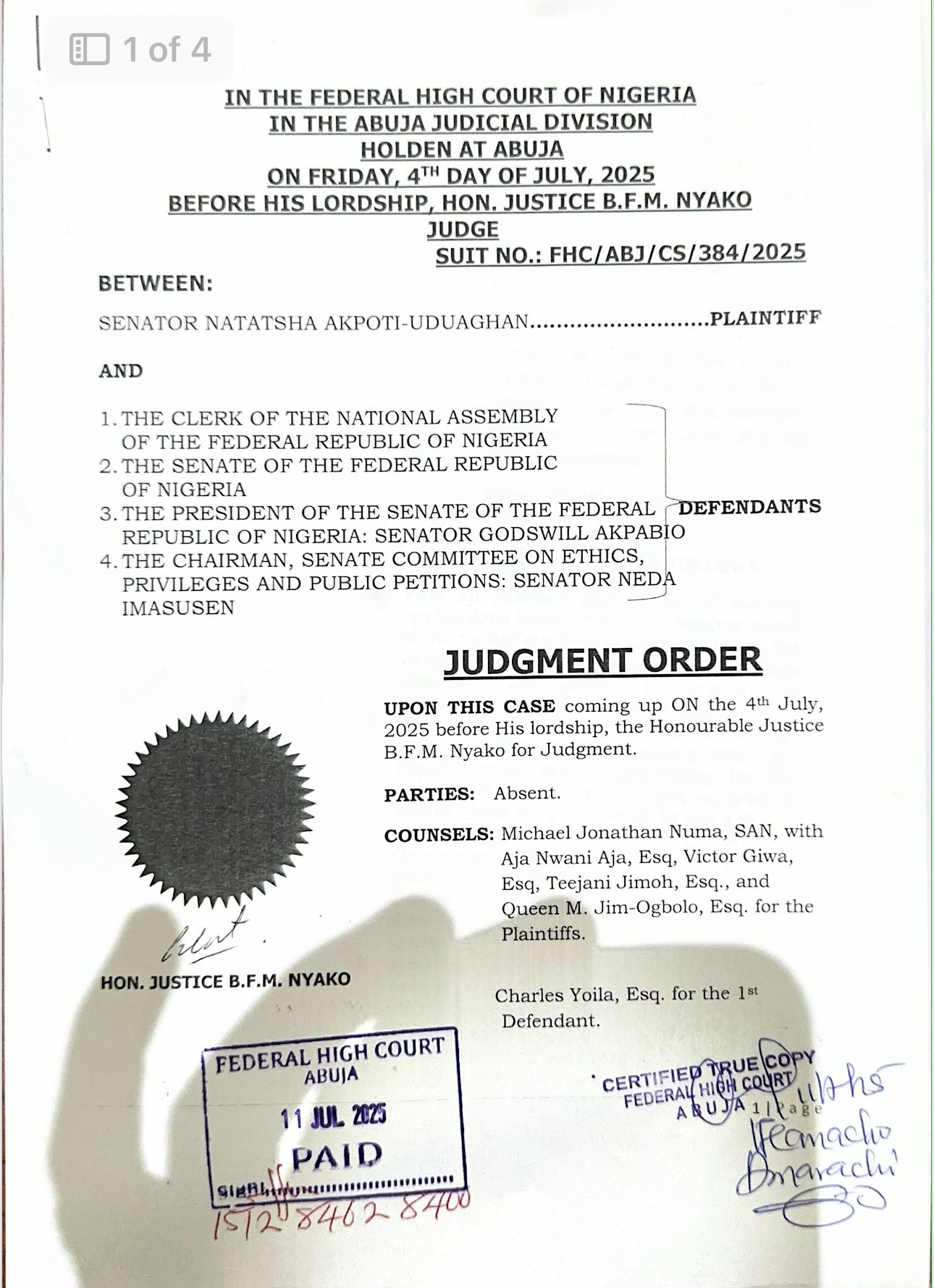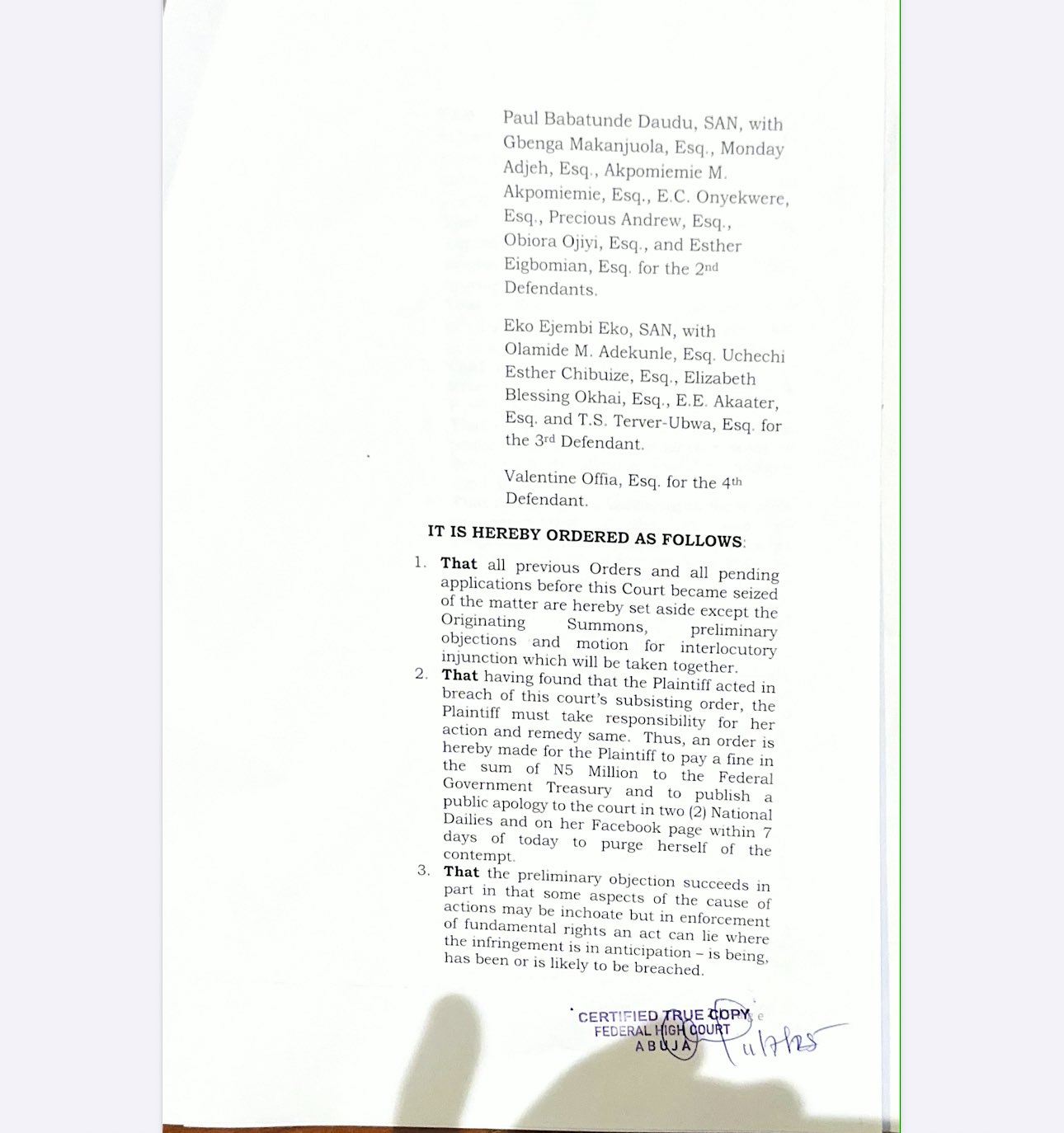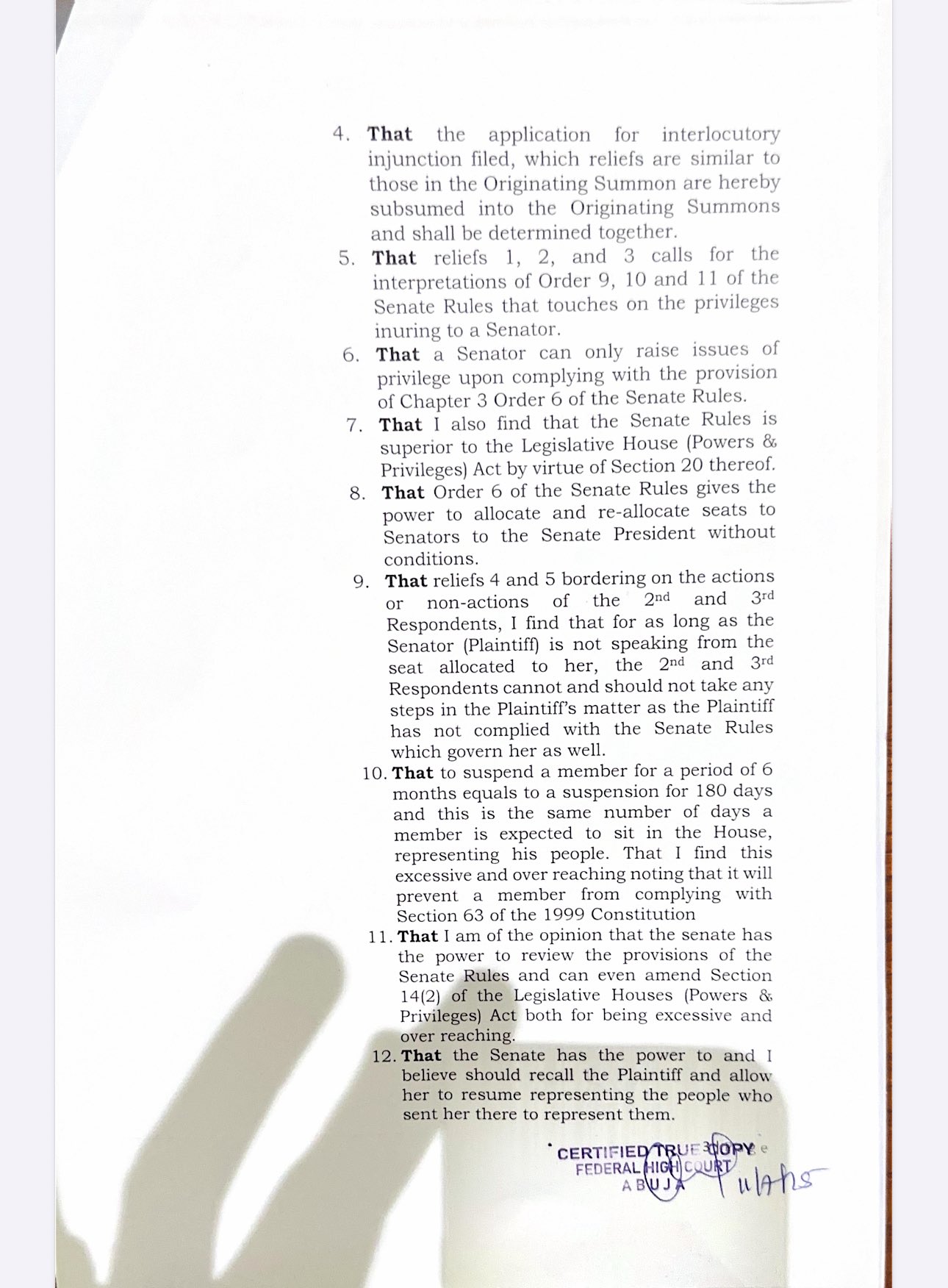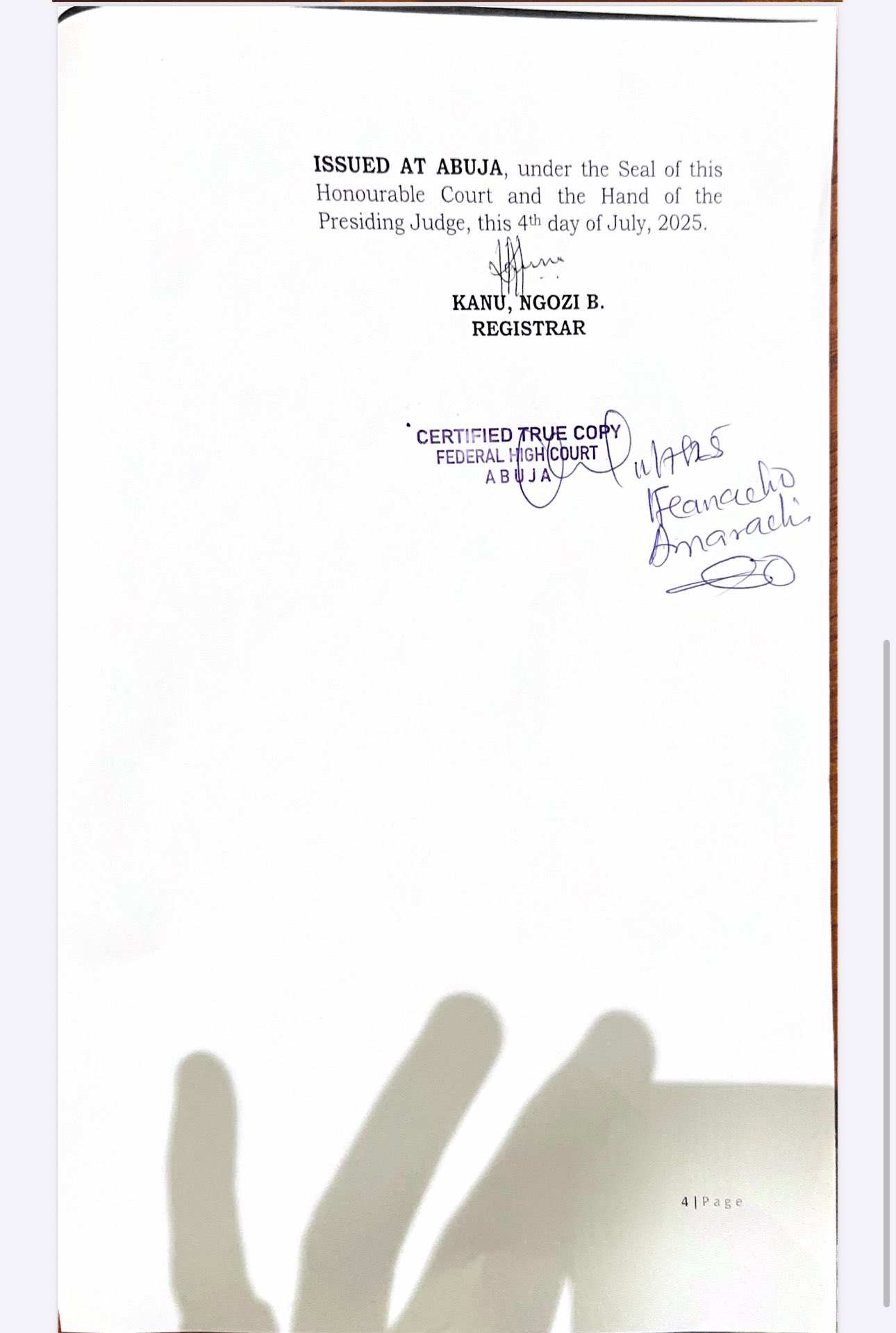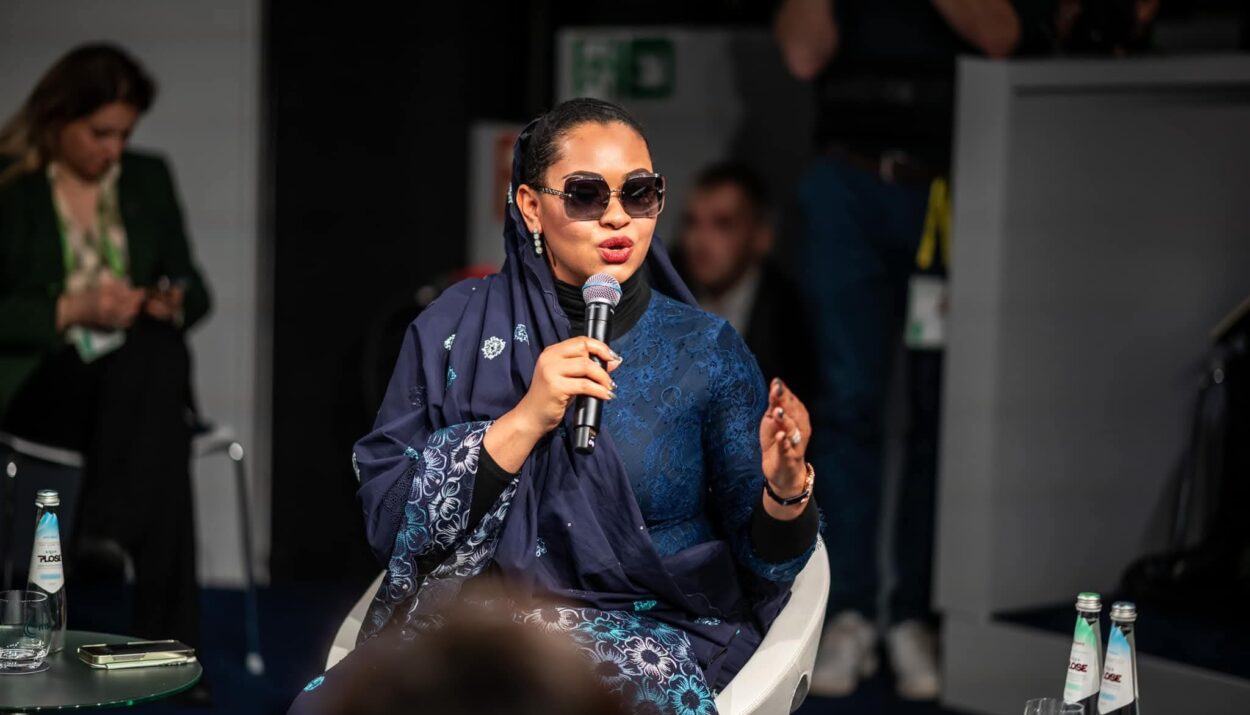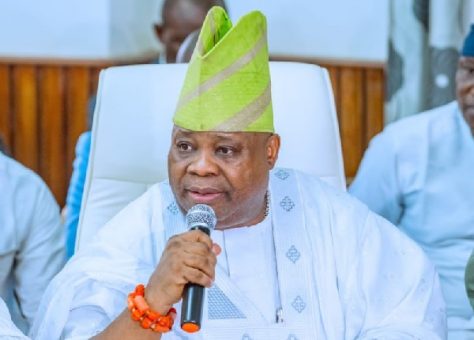Abuja | July 12, 2025 — The Federal High Court in Abuja, presided over by Honourable Justice B.F.M. Nyako, has ordered Senator Natasha Akpoti-Uduaghan to pay a fine of ₦5 million to the Federal Government for acting in contempt of court, while also mandating her to issue a public apology within seven days.
Click Here to Join Our Whatsapp Channel
The court ruling, delivered on July 4, 2025, followed a suit filed by Senator Akpoti-Uduaghan against key officers of the National Assembly, including the Clerk of the National Assembly, Senate President Godswill Akpabio, and Senator Neda Imasuen, Chairman of the Senate Committee on Ethics, Privileges and Public Petitions.
Justice Nyako ruled that the Senator breached a subsisting order of the court and must take responsibility by paying the ₦5 million fine and publishing an apology in two national newspapers and on her official Facebook page.
In a 12-point ruling, the court addressed several issues surrounding the plaintiff’s claims, including the interpretation of Senate Rules and the legality of her suspension. The court held that:
The Senate President has the constitutional power to allocate and reallocate seats to Senators without conditions, as provided in Order 6 of the Senate Rules.
A Senator can only raise issues of privilege after complying with the relevant Senate procedures, specifically Chapter 3, Order 6.
The Senate Rules override the Legislative Houses (Powers and Privileges) Act in this context, due to the authority granted under Section 20 of the Act.
On the issue of her suspension, the court observed that suspending a lawmaker for six months, which equates to 180 sitting days, could amount to denying a constituency its constitutional right to representation under Section 63 of the 1999 Constitution. Justice Nyako described such a suspension as “excessive and overreaching.”
While the court did not issue a direct order for Senator Akpoti-Uduaghan’s reinstatement, it clearly expressed the opinion that the Senate “has the power to and should recall the Plaintiff and allow her to resume representing the people who sent her there.”
This suggestion, while not binding, signals judicial concern over the impact of long suspensions on democratic representation and governance.
Legal heavyweights appeared for both sides, including Michael Jonathan Numa, SAN for the plaintiff, and Paul Babatunde Daudu, SAN, Eko Ejembi Eko, SAN, and others for the defendants.
The case continues to raise important questions about the balance between legislative autonomy and judicial oversight, particularly in matters involving lawmakers’ rights and disciplinary powers within the National Assembly.
